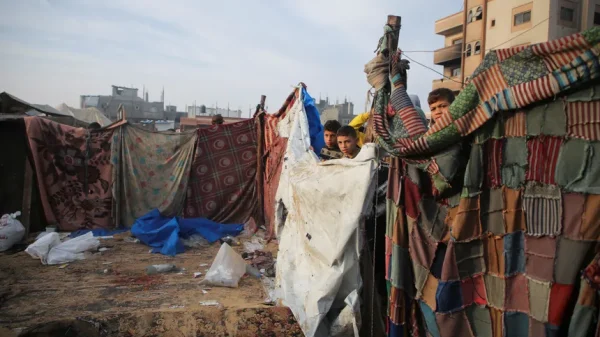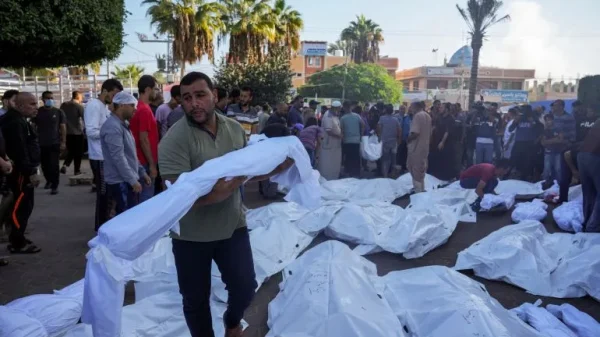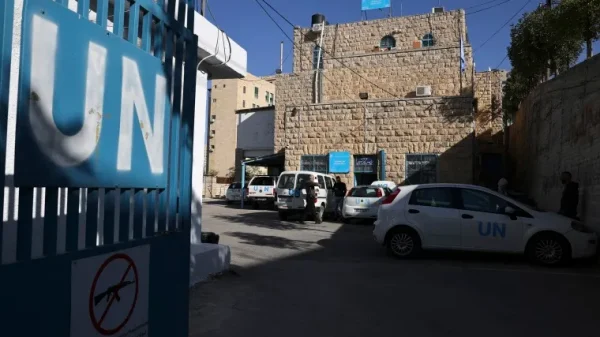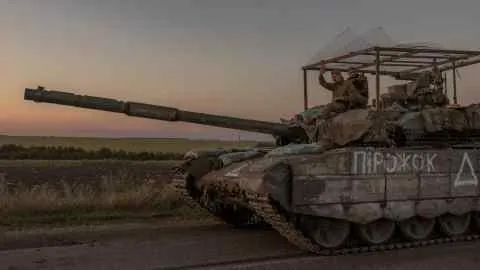As the Russian army closed in, civilians with small children in their arms and heavy suitcases boarded trains and buses, fleeing the eastern city of Pokrovsk. The panic was palpable, with families of all ages rushing to leave, leaving behind whatever they could not carry. Volunteers and soldiers alike helped the elderly and those with disabilities, while rail workers wore bulletproof vests against the looming threat. The air was filled with the acrid smell of explosives and the cries of those desperate to escape the advancing Russian forces.
Natalya Ivaniuk, a mother of two, described the harrowing scene as she fled from the nearby village of Myrnohrad, which was just six miles from the front line. “It was terrifyingly scary,” she recalled to the Associated Press. “We barely got out.” Pokrovsk, one of Ukraine’s main defensive strongholds, is a key logistics hub in the Donetsk region, and its capture would severely compromise Ukraine’s ability to defend itself.
Kyiv officials attempted to ease the pressure on its eastern front by launching a surprise incursion into Russia’s Kursk region on August 6, aiming to distract the Kremlin and split its military resources. Ukrainian President Volodymyr Zelenskiy stated that the daring operation aimed to create a buffer zone to prevent further Russian attacks, especially with long-range artillery, missiles, and glide bombs.
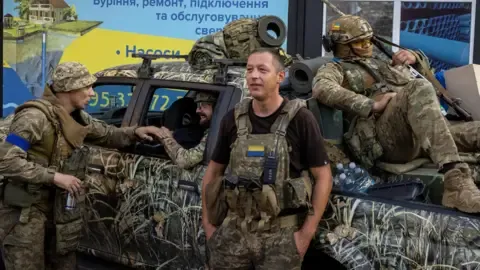
Fragile Hope Fades for Ukrainians in War-Torn Pokrovsk (Image via Getty)
As Russian forces inched closer, residents of Pokrovsk and neighboring towns were ordered to leave on Tuesday. Around 53,000 people still reside in the city, and many were desperate to escape. Tetiana Myronenko, 57, who came from the nearby town of Selydove, just three miles from the front line, described the scene. “There is a lot of destruction around us, so it becomes more and more scary to stay,” she said.
Russia’s relentless push across the Donetsk region has come at a significant cost, with heavy losses in troops and armor. Ukrainian defenders have been forced to retreat from positions blasted to pieces by Russian artillery, missiles, and bombs. Official warnings warned of increasing Russian forces within 10 kilometers of Pokrovsk’s outskirts, with the city’s capture potentially opening the door for a Russian advance on the key stronghold of Chasiv Yar from the south.
As the battle raged on, Pokrovsk officials met with residents to provide logistical details on the evacuation. The promise of shelter in western Ukraine, where guests would be hosted in dormitories and separate houses, offered a glimmer of hope for those fleeing the war-torn city. However, as the Russian army closed in, the fragile hope of escape seemed to fade, leaving many with the stark choice between staying and fighting or fleeing for their lives.









